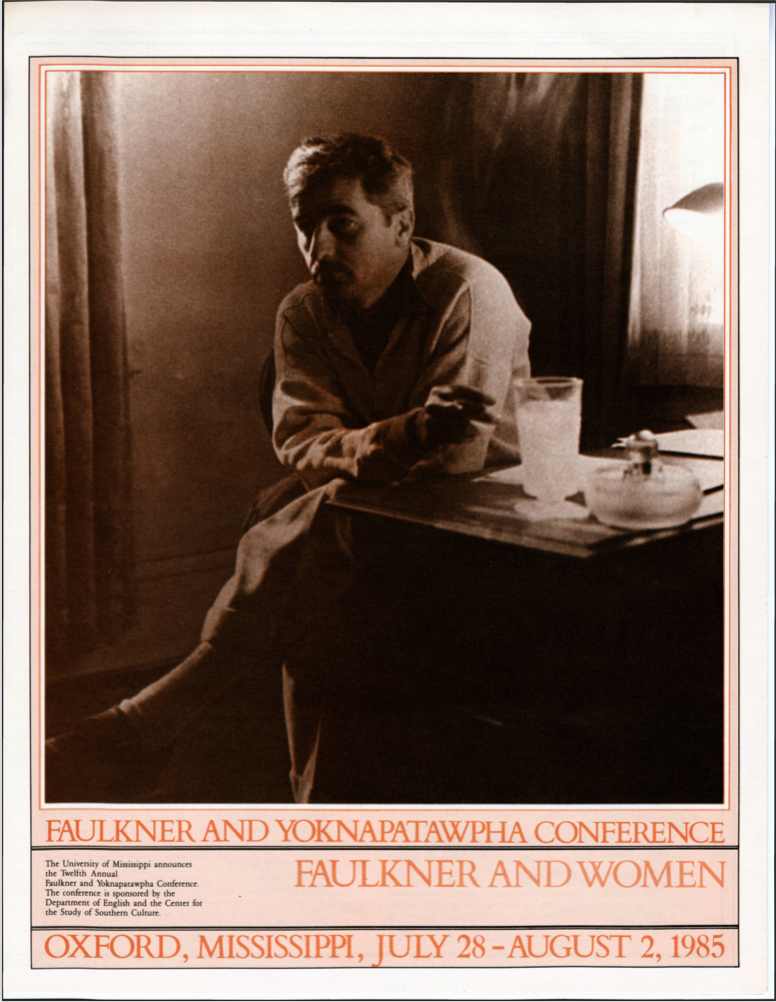
Faulkner's Critics and Women
Location
Education Auditorium
Start Date
29-7-1985 9:00 AM
Description
Conventional wisdom tells us that Faulkner created active men who follow a code of honor and passive women who are close to nature. This male subject/female object opposition pervades Faulkner criticism, sometimes directly, sometimes indirectly. But if we follow Stanley Fish on the issue of interpretive communities, then we begin to see that consensus does not always signify a movement toward the truth of Faulkner's texts; agreement may only indicate that one moves within a discursive construct, in this case the discourse of Faulkner studies.
In the discourse surrounding Light in August, the members of the interpretive community, whether they are marxians or the sons of the Southern Agrarians, have chosen the word "murder" to describe Joe Christmas' killing of Joanna Burden. Yet a rereading of the paragraphs leading up to the blank space on page 267 in which her death occurs can reveal how problematic the charge of murder is. In part, "murder" is demanded by a discursive construct which can trace its origin to Brooks's male/female dichotomy. But "murder" is also the word used by characters in the novel to describe the Joe's act. My argument, then, is that when we hail Joe Christmas as murderer, we hail ourselves in the moment of our own speaking as members not only of the interpretive community but also of the textual community, Jefferson. In other words, the interpretive community seems to have internalized and replicated the judgment of the people of Jefferson; in doing so, we implicate ourselves in a sexist ideology that most of us would consciously reject.
The purpose of this deconstruction of the interpretive discourse on Light in August is to suggest that one needs to approach conventional wisdom with radical suspicion. The ways of summarizing plots or of describing character relations that seem most secure and innocent can be the very moments of one's insertion into masculinist discourse.
Relational Format
Conference Proceeding
Recommended Citation
Duvall, John J., "Faulkner's Critics and Women" (1985). Faulkner and Yoknapatawpha Conference. 8.
https://egrove.olemiss.edu/fy/1985/schedule/8
Faulkner's Critics and Women
Education Auditorium
Conventional wisdom tells us that Faulkner created active men who follow a code of honor and passive women who are close to nature. This male subject/female object opposition pervades Faulkner criticism, sometimes directly, sometimes indirectly. But if we follow Stanley Fish on the issue of interpretive communities, then we begin to see that consensus does not always signify a movement toward the truth of Faulkner's texts; agreement may only indicate that one moves within a discursive construct, in this case the discourse of Faulkner studies.
In the discourse surrounding Light in August, the members of the interpretive community, whether they are marxians or the sons of the Southern Agrarians, have chosen the word "murder" to describe Joe Christmas' killing of Joanna Burden. Yet a rereading of the paragraphs leading up to the blank space on page 267 in which her death occurs can reveal how problematic the charge of murder is. In part, "murder" is demanded by a discursive construct which can trace its origin to Brooks's male/female dichotomy. But "murder" is also the word used by characters in the novel to describe the Joe's act. My argument, then, is that when we hail Joe Christmas as murderer, we hail ourselves in the moment of our own speaking as members not only of the interpretive community but also of the textual community, Jefferson. In other words, the interpretive community seems to have internalized and replicated the judgment of the people of Jefferson; in doing so, we implicate ourselves in a sexist ideology that most of us would consciously reject.
The purpose of this deconstruction of the interpretive discourse on Light in August is to suggest that one needs to approach conventional wisdom with radical suspicion. The ways of summarizing plots or of describing character relations that seem most secure and innocent can be the very moments of one's insertion into masculinist discourse.

